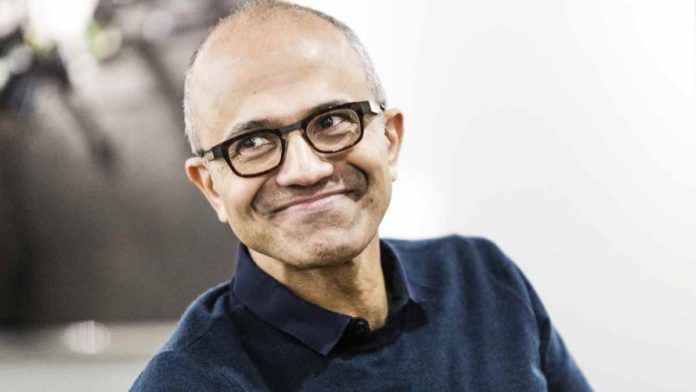UNITED STATES: In a recent interview, Microsoft CEO Satya Nadella drew parallels between the current state of artificial intelligence (AI) and the transformative impact the internet had in the mid-1990s. Nadella’s comparison harks back to a significant moment in tech history when co-founder Bill Gates issued a memo in 1995 predicting the internet’s revolutionary growth and its pivotal role in shaping Microsoft’s trajectory.
Nadella’s remarks came during an episode of “The Circuit with Emily Chang,” where he highlighted the burgeoning influence of AI, which he likened to the far-reaching effects of Gates’ “The Internet Tidal Wave” memo. This memo was a catalyst for embracing the internet, acknowledging its potential to reshape daily interactions for both individuals and businesses.
The Microsoft CEO stated, “The Bill memo in 1995, it does feel like that to me. I think it’s as big.” He further emphasized the need to avoid overhyping AI while remaining committed to utilizing its potential for democratizing access to technology.
To realize this democratization vision, Microsoft has forged a collaborative partnership with OpenAI. Leveraging OpenAI’s cutting-edge technology, Microsoft has incorporated AI capabilities into products such as the Bing chatbot. Conversely, OpenAI gains access to Microsoft’s expansive data centre infrastructure, enhancing its own AI offerings. OpenAI CEO Sam Altman praised the partnership’s success, underscoring its rarity in the realm of major tech collaborations.
Yet, the Microsoft-OpenAI alliance has encountered its share of challenges and controversies. Elon Musk, a co-founder of OpenAI, departed from the organization over differences regarding OpenAI’s direction, establishment of a for-profit branch, and concerns about Microsoft’s level of control.
Musk voiced apprehensions that OpenAI was “effectively controlled by Microsoft.” In response, Altman refuted these claims, asserting OpenAI’s independence and denying any intention of selling the organization.
Nadella, acknowledging the ongoing discourse surrounding AI, cautioned against succumbing to the tech industry’s propensity to overhype advancements. He expressed his aspiration to harness AI for the ultimate purpose that unites many within the technology sector: extending access to technology on a broader scale.
As the tech world continues to grapple with the immense potential of AI, Satya Nadella’s outlook invites contemplation on the parallels between today’s AI landscape and the seismic shifts that followed Gates’ iconic internet memo.
With its potential to reshape industries, societies, and economies, AI stands poised to be the next transformative force that reshapes the modern world. The outcome, however, remains to be seen as the march of progress propels us into an exciting and uncertain future.
Also Read: Google’s AI Chatbot is a Potential Personal Life Coach in the Making

